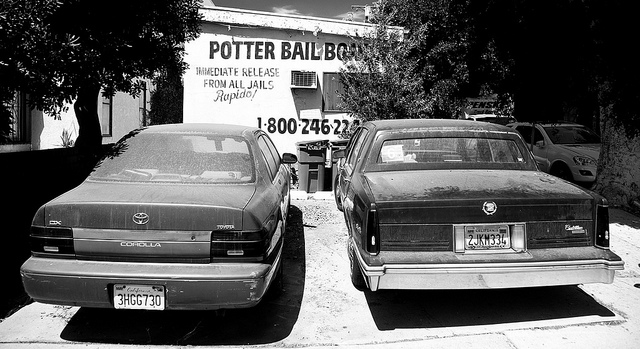Study Shows that Few Have Counsel for Bond Hearings
It’s a scene I have witnessed hundreds, if not thousands, of times. At a first appearance hearing, a magistrate judge calls the calendar as twenty or so inmates in orange or green jumpsuits are brought out chained to one another. The look on their faces is one of shock or of last night’s drugs or alcohol. The judge reads out a list of basic rights and criminal charges. The group is then taken back to a holding cell. Some will get bond immediately. Others will remain in jail another week or more for a lawyer to be assigned or retained. Generally, if I am on the case at the first appearance stage, I am the only retained lawyer in the room. Most lawyers are not retained yet at this stage. The arrest came unexpectedly and there wasn’t time to get the lawyer arranged yet. If I’m retained before first appearance it is because I was retained when my client learned that he was the target of a criminal investigation or because I was reached late the afternoon or night before. Invariably, I will have some ducks in a row, which means that I will likely get a better bond than the folks in jumpsuits who stand before the judge alone trying to fend for themselves. Those who don’t get a bond or for whom bond is set in an unattainable amount may be stuck with what happens to them. Weeks down the road, the Superior Court judge will be reluctant to second guess what the earlier judge did, even if the earlier judge didn’t have the benefit of a thorough presentation.
In a post titled “Bail me out, bro,” A Public Defender discusses a report from The Constitution Project. The findings confirm what I have witnessed from an anecdotal perspective my entire career. As reported by A Public Defender, “very few people have the benefit of counsel, which leads to high bail amounts, greater incarceration and increased numbers of people pleading guilty simply to get out of jail.”
Though not discussed in the blog post, the problems likely do not end there. Often, the defendant who takes a plea just to get out of jail sets himself up for failure by taking on sentencing conditions that he is not prepared to meet (for instance, the addict who signs up for random urine tests or the homeless person who now must register as a sex offender).
Bond hearings are tricky and can be complicated. The lawyer who appears for a bond hearing needs to know things like the amount of equity in a home (and we are coming out of a period of history where equity is at an all time low), the number of character witnesses who can vouch for the defendant, or enough about the defendant’s background to demonstrate that she has sufficient ties to the community not to pose a significant flight risk. Sometimes the smart thing to do is advise the client to remain locked up a few more days so that a defense can be presented at the bond hearing. On complicated or serious cases, a bond hearing can be every bit as tricky as a suppression hearing or pretrial motion in limine.
Bond has a trickle-down effect to other portions of the case.
- It is easier to defend a client on bond. The client can come to the office to review discovery without the risk of a potential snitch reading it in prison.
- Trial preparation is smoother with a bonded client. The client is free to come to the office to meet with counsel and prepare for testimony.
- A client on bond can get mental health or addiction treatment in a way that a client in jail cannot.
- A client on bond can maintain contact with family and can continue to work, while an incarcerated client may have his life literally fall apart while in jail awaiting trial.
Access to counsel at a bond hearing is every bit as important as having a lawyer at trial and at sentencing. The fact that representation by counsel at bond is an exception rather than the rule is disturbing. When a client loses a bond hearing, he is likely to lose other critical components of his case as the matter unfolds.


I don’t think the title of your article matches the content lol. Just kidding, mainly because I had some doubts after reading the article.